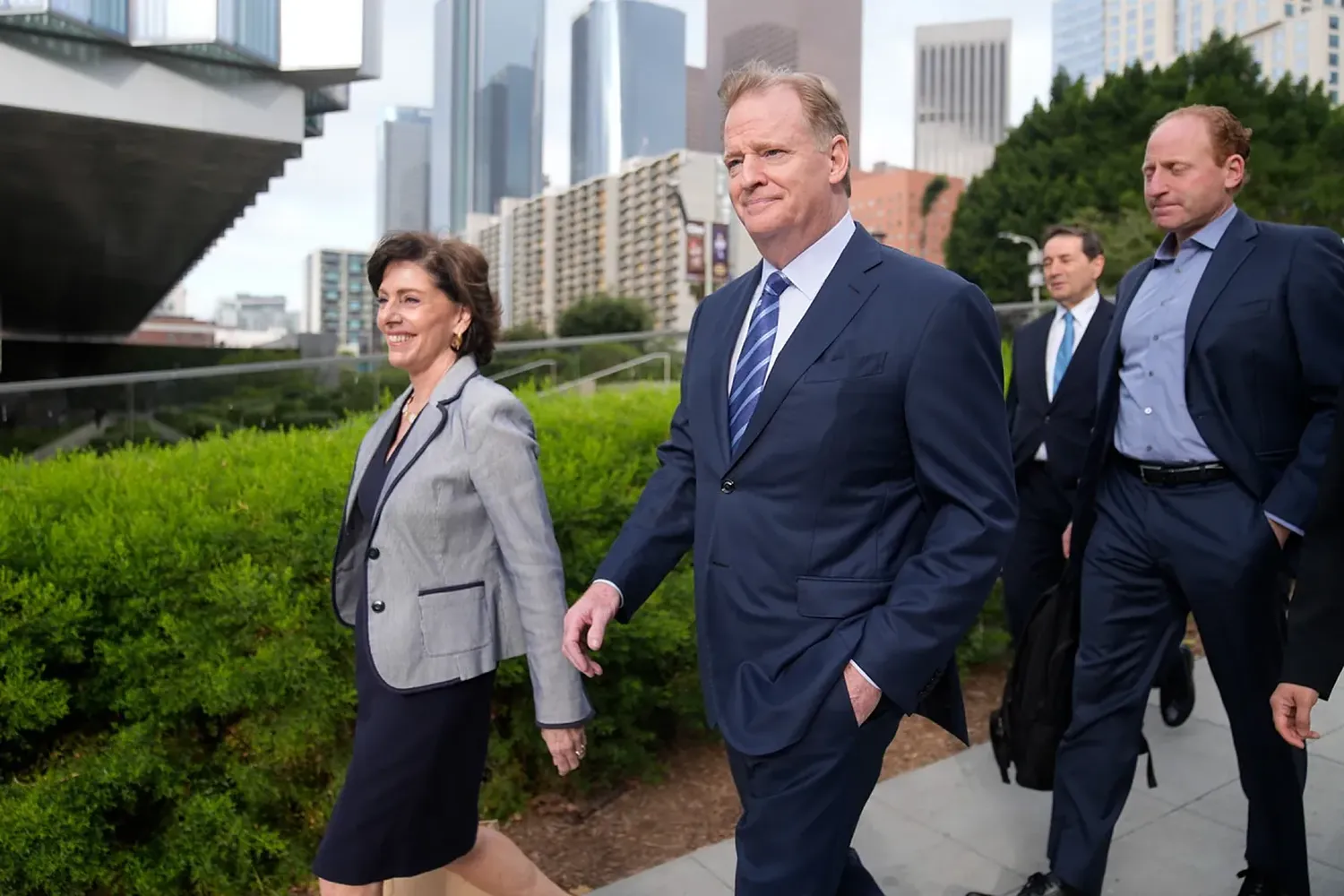NFL
NFL's TV Monopoly Under Siege: Class-Action Lawsuit Seeks Billions
NFL faces a class-action lawsuit that could dismantle its TV monopoly and cost billions in damages.
The National Football League (NFL) is currently embroiled in a high-stakes legal battle that could fundamentally alter its business model and cost the league billions of dollars. The class-action lawsuit, which has been ongoing since 2015, challenges the legality of the NFL's "Sunday Ticket" package, alleging that it violates antitrust laws by forcing consumers to pay inflated prices for out-of-market games.
The Core of the Lawsuit
The lawsuit, initially filed by a group of consumers and businesses, argues that the NFL's exclusive agreements with broadcast partners like DirecTV (and now YouTube TV) have created a monopoly that restricts competition and inflates prices. The plaintiffs claim that fans who want to watch games not broadcast locally are compelled to purchase the entire Sunday Ticket package, which costs $449 annually on YouTube TV. This setup, they argue, forces consumers to pay for more than they want or need, violating antitrust laws.
The plaintiffs' attorneys argue that, given the relatively low cost of internet streaming and satellite and cable television carriage, each NFL team could independently offer their games at a competitive price to anyone in the country. Instead, the teams have collectively chosen to forgo this opportunity in favor of creating a more lucrative monopoly.
Potential Damages and Legal Precedents
The stakes are incredibly high for the NFL. The plaintiffs are seeking billions in potential damages, which could be tripled under antitrust law, potentially amounting to $21 billion. This figure includes claims from 2.4 million residential subscribers and 48,000 businesses who paid for the package from 2011 through 2022.The NFL has a history of settling high-profile cases to avoid public scrutiny. For instance, the league reached a $790 million settlement to end a lawsuit by St. Louis residents who opposed the relocation of the Rams to Los Angeles in 2016 and a $765 million settlement in 2013 to compensate players who sustained brain injuries due to concussions.
Key Figures and Testimonies
The trial, currently being heard in a federal court in Los Angeles, has seen testimonies from several high-profile figures, including NFL Commissioner Roger Goodell and team owners Jerry Jones and Robert Kraft. Goodell defended the Sunday Ticket package as a premium product, likening it to a subscription service like HBO. He argued that the package provides fans with a high-quality option to ensure access to live telecasts of all Sunday afternoon NFL games.
However, the plaintiffs presented evidence suggesting a price-fixing scheme between the NFL and DirecTV. An email from Robert Stecklow, former director of sports strategy for DirecTV, to an NFL executive indicated that the league had agreed on pricing every year in advance. This correspondence, the plaintiffs argue, shows that the NFL and DirecTV conspired to keep prices high.
The NFL's Defense
The NFL's defense hinges on the argument that its teams operate as a legitimate joint venture for the production and distribution of games on television. The league contends that the current setup provides the widest variety of matches for fans at a reasonable price. Beth Wilkinson, a lawyer for the NFL, emphasized the league's immense popularity and argued that consumers are content with its offerings, which include NFL RedZone and NFL+.
The NFL also maintains that it has the right to sell Sunday Ticket under its antitrust exemption for broadcasting. However, the plaintiffs argue that this exemption only applies to over-the-air broadcasts and not pay TV.
Potential Impact on the NFL and Other Sports Leagues
If the NFL loses the lawsuit, it could be forced to change its business model significantly. This could include offering more consumer-friendly alternatives, such as per-game packages, weekly subscriptions, or more affordable prices. The outcome of this case could also have broader implications for other major sports leagues, which are closely monitoring the situation.
The class-action lawsuit against the NFL's Sunday Ticket package has the potential to disrupt the league's television monopoly and result in billions of dollars in compensation. As the trial continues, the sports world watches closely, aware that the outcome could reshape how professional sports are broadcast and consumed in the United States.

